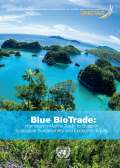
This report looks at the emerging concept of “Blue BioTrade”— a new tool to promote sustainability and equity focused on marine-based products and services. It describes how the application of the Blue BioTrade concept can promote sustainable and equitable economic sectors and value chains that rely on marine and coastal resources, and includes a proposal for implementing a Blue BioTrade approach.
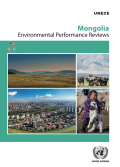
This report takes stock of progress made by Mongolia in the management of its environment since 1987, and covers legal and policy frameworks, compliance assurance, greening the economy, environmental monitoring, public participation and education for sustainable development. It also examines the efforts of Mongolia to integrate environmental considerations in its policies in the forestry and health sectors.
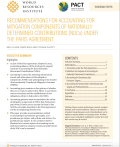
This paper provides recommendations for developing accounting guidance under the Paris Agreement that can be applied to the variety of mitigation components in Parties’ NDCs. It outlines key decisions to be made regarding NDC accounting and reporting of accounting-related information and provides approaches to address those issues.
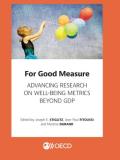
This report looks at key issues highlighted by the 2009 Commission on the Measurement of Economic Performance and Social Progress (“Stiglitz-Sen-Fitoussi” Commission), such as how to better include the environment and sustainability in our measurement system, and how to improve the measurement of different types of inequalities, of economic insecurity, of subjective well-being and of trust.
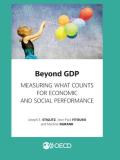
While GDP is the most well-known, and most powerful economic indicator, it can’t tell us everything we need to know about the health of countries and societies. In fact, it can’t even tell us everything we need to know about economic performance. This report looks at progress made over the past 10 years in collecting well-being data, and in using them to inform policies.
